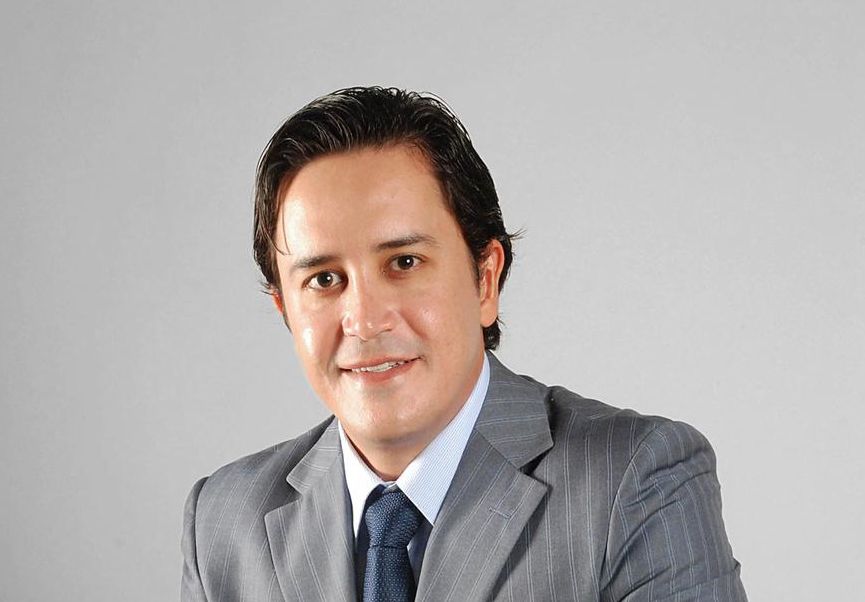São Paulo – The Brazilian industry of transformed plastics has adapted to the new business reality imposed by the COVID-19 pandemic and is managing to grow as a global supplier, despite unfavorable conditions. Led by Think Plastic Brazil, an international promotion project for the segment, companies began an intense schedule of online events, which has been driving foreign sales.
According to data from Think Plastic, an initiative carried out by the Brazilian Plastic Institute (INP) and the Brazilian Trade and Investment Promotion Agency (Apex-Brasil), from January to May this year, companies backed by the project increased their exports by 20% in revenue and 4% in volume, to USD 136.5 million and 54,900 tonnes, respectively. Among them, 57 reached new markets, and 17 exported new products. The Brazilian industry in the sector as a whole also increased international sales in the period.
The Strategy and Project Planning manager at Think Plastic Brazil, Carlos Moreira (pictured above), told ANBA what this industry has experienced in recent years. According to Moreira, a transformation plan was started in 2016 with investments in technology and digitalization. “Around 2018, we started organizing some online events,” he says. But going to an international show in early 2020 and realizing everything would change with COVID made Think Plastic rethink its strategy to help companies continue doing business in the new context.
A crisis workgroup was assembled. In February, even before COVID officially arrived in Brazil, 23 projects had already been listed online, which began to be put into practice in March. Think Plastic works with transformed plastics. A good part of them proved to be of essential use in the pandemic, such as syringes, plastic tubes for vaccines, disposable gloves, face shields, ventilators, and other hospital items. In addition to these, the sector encompasses a myriad of products, from those aimed at the construction industry, such as pipes, to food packaging, toys, housewares, among others.
Read more:
Thirty webinars were scheduled to develop companies, most of them focused on e-commerce and marketplaces, in an initiative called Think Plastic Together. “For companies to understand how they could start to put together the sale of their products, mainly in housewares,” says Moreira. Another of the virtual projects was the World Plastic Connection, with international technical seminars for target countries to show the sector’s innovations during the pandemic and how they could help in the COVID situation.
Disseminating well-performing reports in different digital media, from podcasts to YouTube, has also been part of the strategy to motivate companies to grow in the current environment. Online B2Bs were also held to replace on-site participation in shows, including those in Arab countries. For activities aimed at Arab markets, Think Plastic has partnered with the Arab Brazilian Chamber of Commerce (ABCC).
This digital journey in search of international publicity amid the pandemic drew attention not only of transformed plastics importers but also of input sellers abroad. “I have never seen so many Chinese after us to sell raw materials,” jests Moreira. Many Think Plastic companies took a market share from Chinese suppliers. “There was a shift in the supply chain, for countries to which we didn’t export because China was heavy on them, we started to export,” he says.
The manager of Think Plastic says the sector’s demand fell significantly in the first moment of the pandemic. Still, in the second half of last year, sales began to improve and compensate for the hardships at the beginning of 2020. During this period, the sector also faced some global problems, such as a lack of inputs. Even so, the numbers are not disappointing, and exports are now thriving.
Business with Arabs
The strategy of growing through online media continues. This year will have seven major virtual business events. One of them is a buyer project in which 15 Think Plastic companies from the construction and housewares sectors will negotiate with importers from the Gulf Cooperation Council (GCC) and North Africa from September 20 to October 7. The event will be organized in partnership with the ABCC, and registration for Arab importers is open (click here to learn more). As part of the initiative, the companies in the project will have an international seminar on the Arab market for finished plastics.
Think Plastic currently supports 180 companies, a number that has grown significantly over the beginning of 2020, when they were less than 100. Of the total number of companies in the program, 135 exported from January to May this year to 84 countries. Over the same period last year, there was a 16.3% increase in the number of exporters and 3.7% in destinations served. Think Plastic companies account for 42.4% of Brazil’s exports in the sector in terms of revenue and 63.3% in volume.
Quick facts:
B2B
Plastics producers with Arab importers
September 20 to October 7, 2021
Open for registration until September 16
Registration for Arab importers: member@ccab.org.br
Translated by Elúsio Brasileiro




